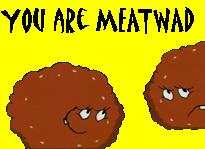This guy should have been booted from Canadian cabinet in 2008, with his bungling over the Maple leaf Listeria outbreak that killed at least 23 people. But, he’s still there, just another reflection of the rise of mediocrity in Canada. But why listen to this grumpy old man. Jim Romahn, who’s grumpier and older writes:
Agriculture Minister Gerry Ritz is once again out to lunch while a meat packer  undergoes a huge recall of tainted products.
undergoes a huge recall of tainted products.
When it was Maple Leaf Foods Inc. recalling processed meats, many of them cold cuts, because of Listeria monocytogenes, Ritz said it was death by a thousand cold cuts.
That went over really well with the families of the 21 people who died and others who were sickened.
Now in the midst of a massive and growing recall of ground beef and steaks from XL Foods Inc. of Edmonton, he is quoted in Hansard saying “The people at CFIA have done an exemplary job.”
Yeah, right!
So wonderful that they missed all of those deficiencies and failures to conduct adequate testing and to keep adequate food-safety records.
That only surfaced after the massive recall began, when, in farmer language, the horse had escaped from the barn.
And why, pray tell, has the CFIA failed to require the company to keep good enough records that there could, and should, have been only one recall. We’re now up to eight and still counting.
Ritz said the CFIA is working hard to regain the confidence of the United States meat packers and Food Safety and Inspection Service and “to get back into that  lucrative American market.”
lucrative American market.”
I guess the Canadian market doesn’t count.
Ritz is once again out to lunch, apparently oblivious to the hit that beef consumption is taking because Canadians are afraid to buy hamburger from any of the major supermarket chains. I have encountered a number of people who say they’ve stopped buying hamburger at supermarkets. Maybe also the fast-food restaurant chains, although I haven’t personally heard any comments about them.
Ritz said “I reiterate that none of the product made it to store shelves and no illnesses have been linked back to this particular strain of E. coli.
“We have actually done a tremendous job.”
I guess the Calgary famlly whose little girl is in hospital with, the parents say, E. coli food poisoning, are really impressed with this “tremendous job.”
The food inspection service at the Canadian Food Inspection Agency is in dire need of a shakeup, or shakedown.
And it’s not only meats that require a total overhaul.
Eggs are another product where the CFIA track record is abysmal, as revealed in court documents related to the lawsuits against Ontario’s two dominant egg graders and the general manager of the Egg Farmers of Ontario marketing board.
Eggs that passed CFIA inspection at the two dominant egg-grading company plants, and that were requested by the general manager of the egg board, arrived at another egg-grading station dirty, so cracked and broken that they were leaking all over. These were supposedly Grade A eggs.
And if you believe the claims of the dominant egg grading companies that the eggs were Grade A when they left their premises and must have become dirty, cracked and broken in transit, then I’d like to interest you in investing in some swamp land in Florida.
And if they did get dirty, cracked and broken in transit, what does that say about those companies’ trucking performance?
But the obvious need for major changes to food inspection at the CFIA are not going to happen under Ritz who says they are doing “a tremendous job” or “an exemplary job.”
He’s out to lunch. Maybe of a thousand cold cuts.
Meanwhile beef farmers and the entire meat-packing industry suffers a loss of consumer confidence.


